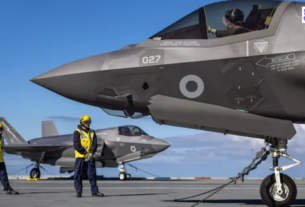The United Kingdom is standing firm on maintaining a global defence footprint, including its historic “East of Suez” presence, even as pressure mounts from allies and domestic voices to concentrate more heavily on European security. Despite recent comments from senior U.S. military officials suggesting that a permanent UK force in the Indo-Pacific may not be strategically helpful, Britain remains committed to its global posture as part of its integrated defence strategy.
The term “East of Suez” refers to the UK’s military and diplomatic roles beyond the Middle East into Asia-Pacific waters, a concept dating back to Britain’s imperial legacy. While the UK significantly reduced its presence in those regions in the late 20th century, recent years have seen a revival of that commitment. The HMS Prince of Wales aircraft carrier is scheduled for deployment to the Indo-Pacific in 2025, reinforcing Britain’s presence in the region and symbolizing a strategic “tilt” outlined in the government’s Integrated Review.
Critics argue that such moves stretch already limited defence resources, especially with the ongoing war in Ukraine and rising threats on Europe’s eastern flank. U.S. Indo-Pacific Command leaders have voiced concern that European allies, including the UK, should focus on defending the European continent, leaving Indo-Pacific operations primarily to the U.S. and regional partners. They argue that the Indo-Pacific theatre requires sustained and sizable commitments that only a few nations can afford long-term.
However, UK defence officials insist that remaining engaged East of Suez is vital for maintaining global influence, ensuring maritime security, and countering strategic threats such as China’s growing assertiveness. They argue that Britain’s global alliances, especially through AUKUS and Five Eyes, require the UK to operate beyond its immediate neighborhood. The Ministry of Defence continues to emphasize a balance between regional commitments in Europe and broader international responsibilities.
Domestically, some politicians, including Labour’s defence spokespersons, have questioned the practicality of the Indo-Pacific focus. Yet others within both the government and opposition see it as essential for Britain’s post-Brexit identity as a global power.
As strategic tensions rise globally, the UK’s refusal to retreat from its East of Suez commitments reflects a broader desire to project power and remain relevant on the world stage, despite resource constraints and competing demands at home.




